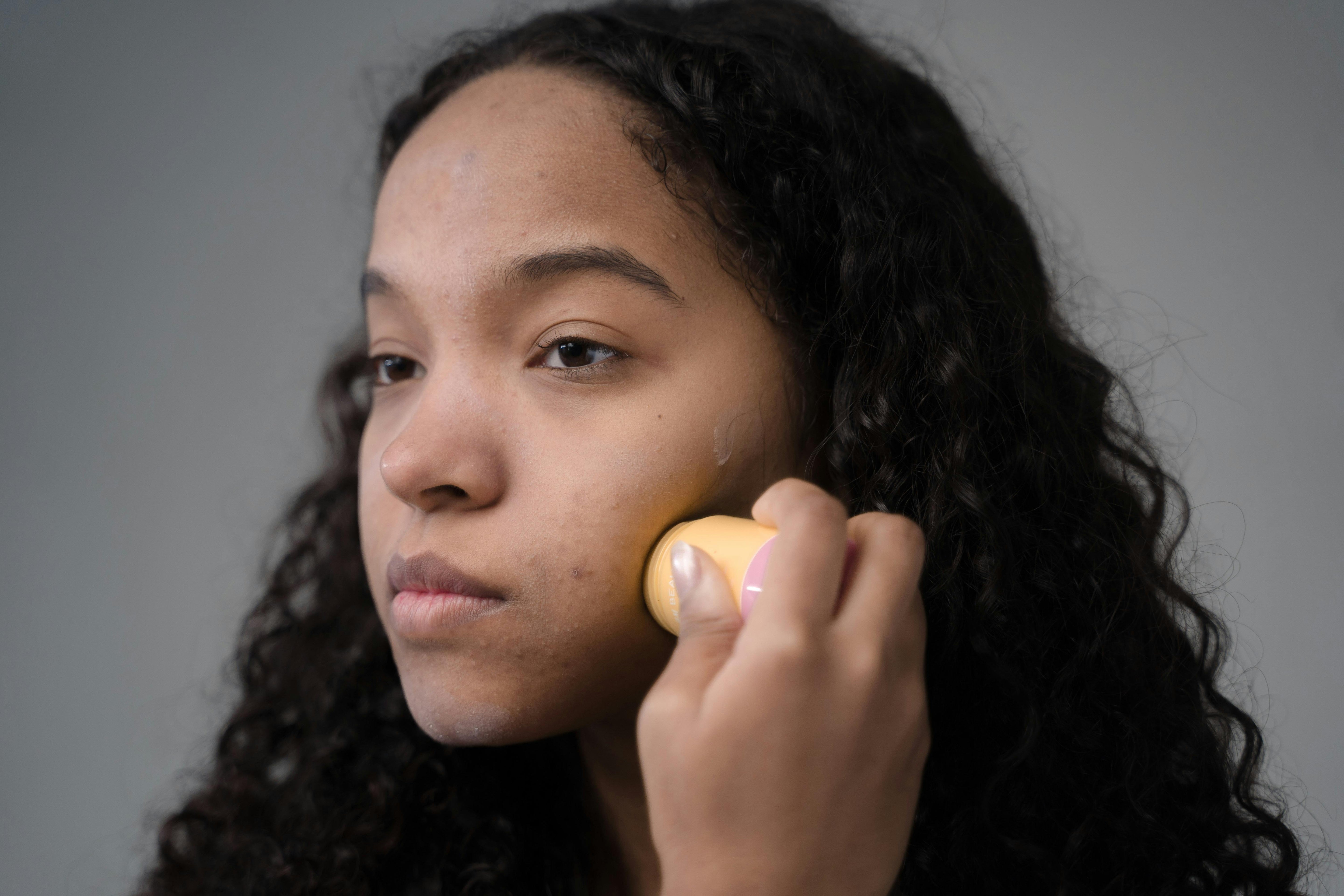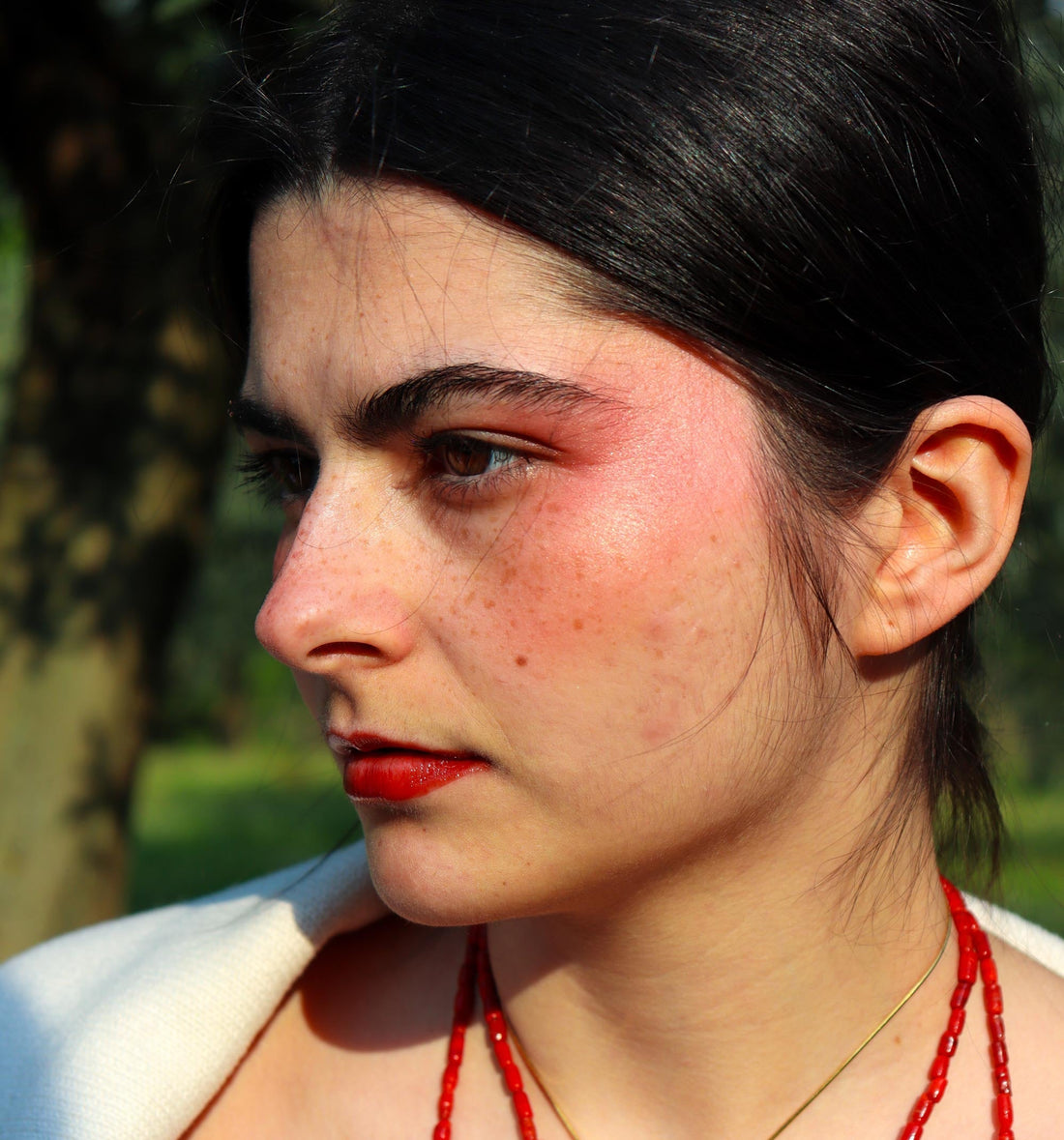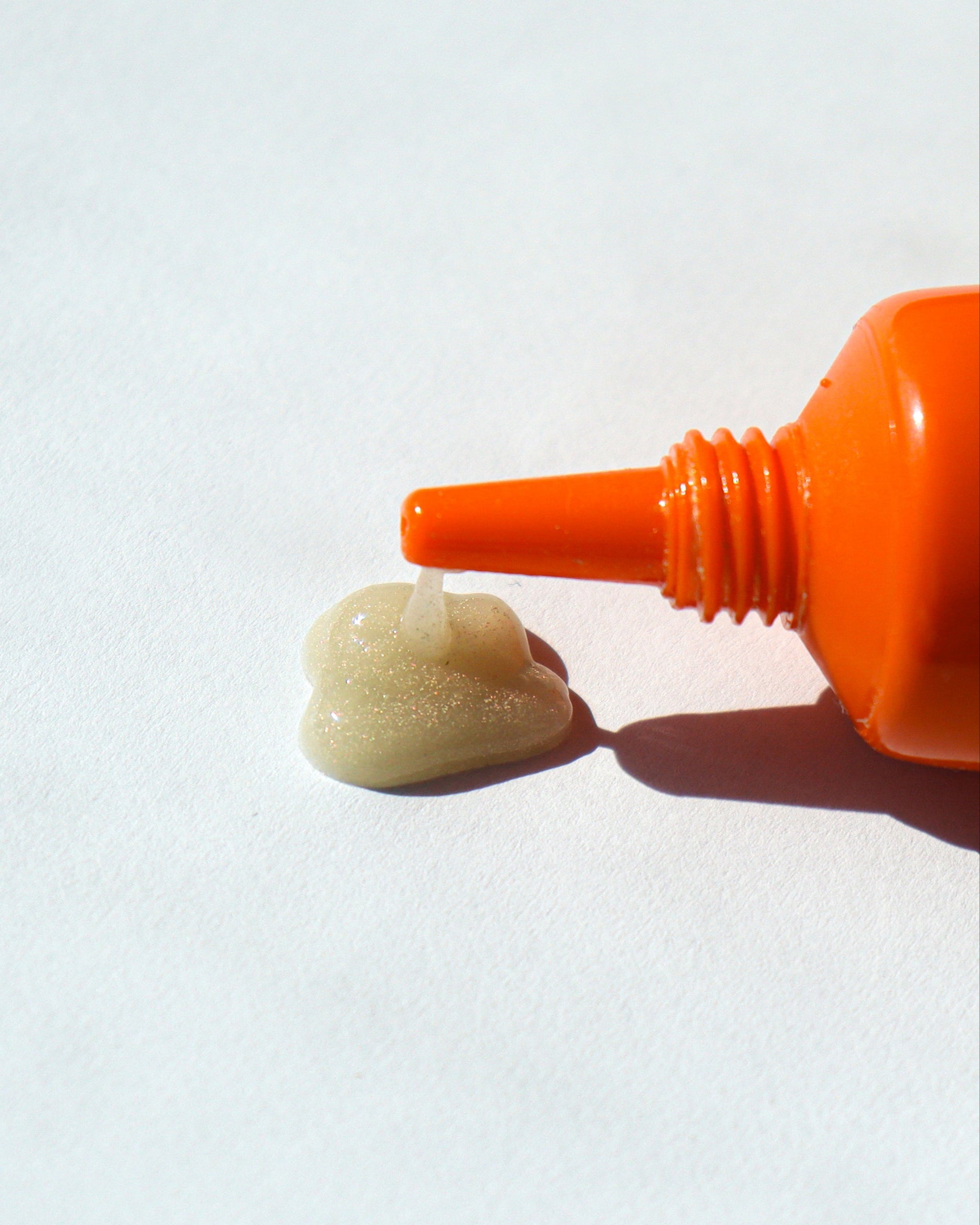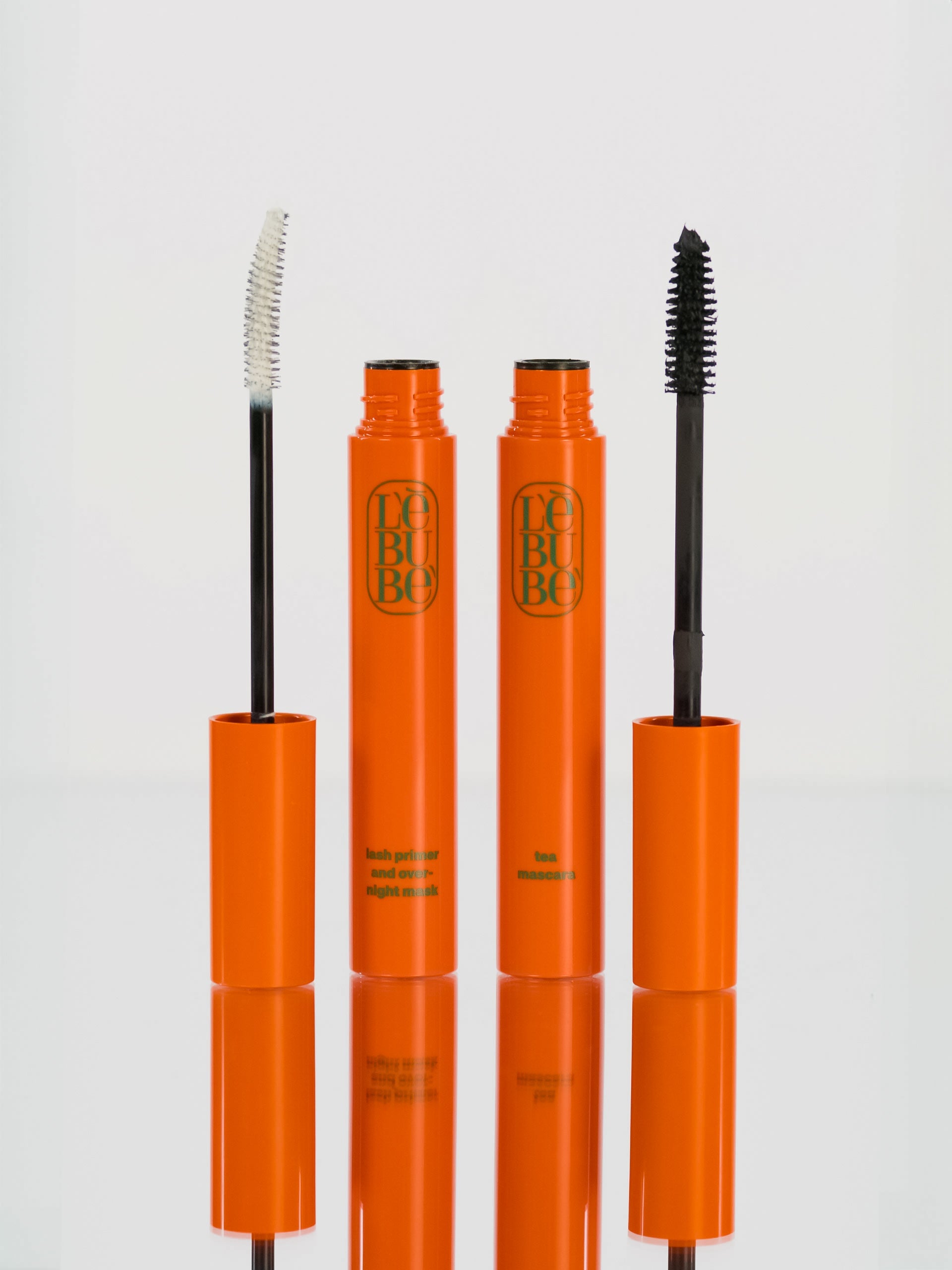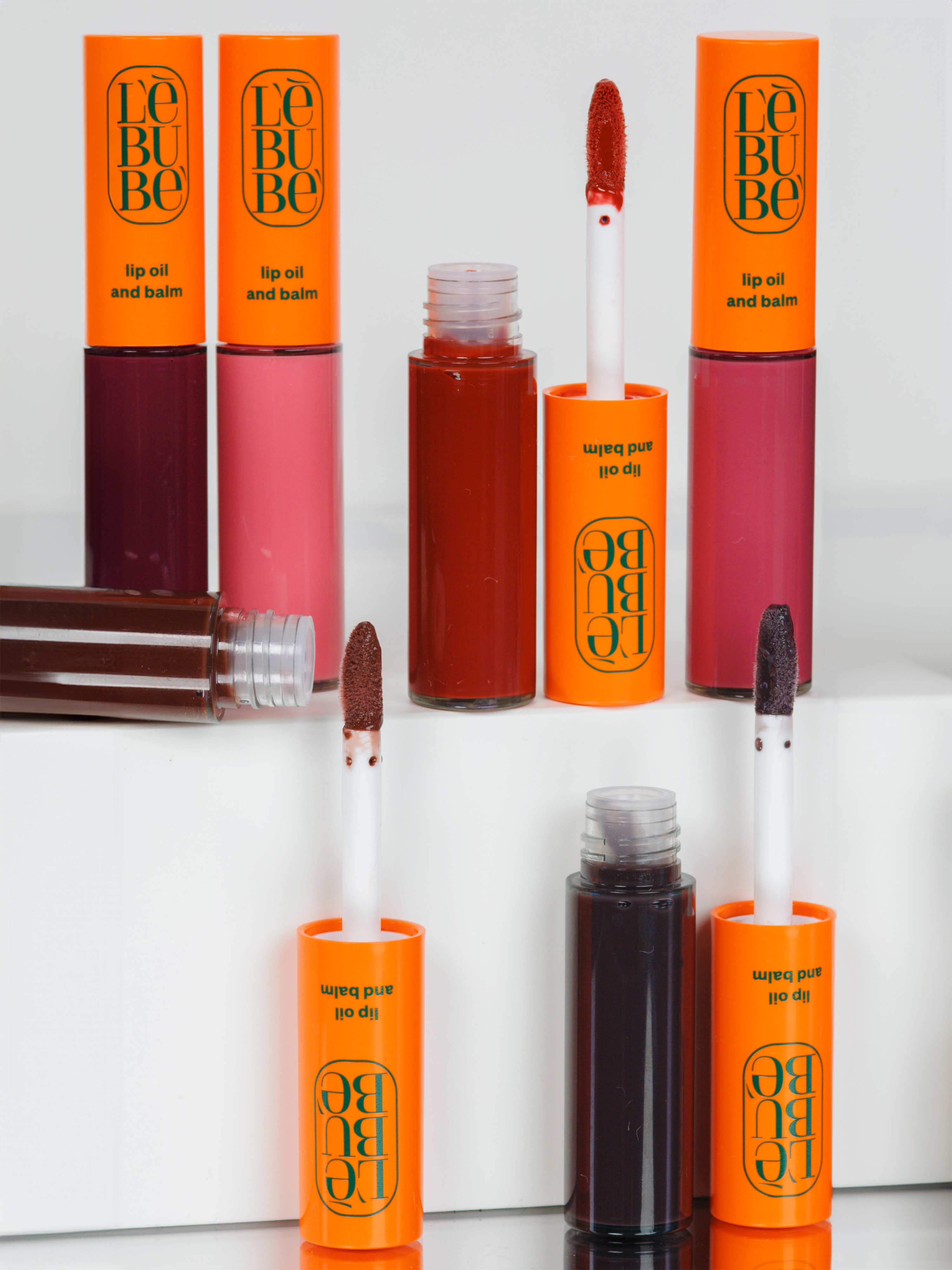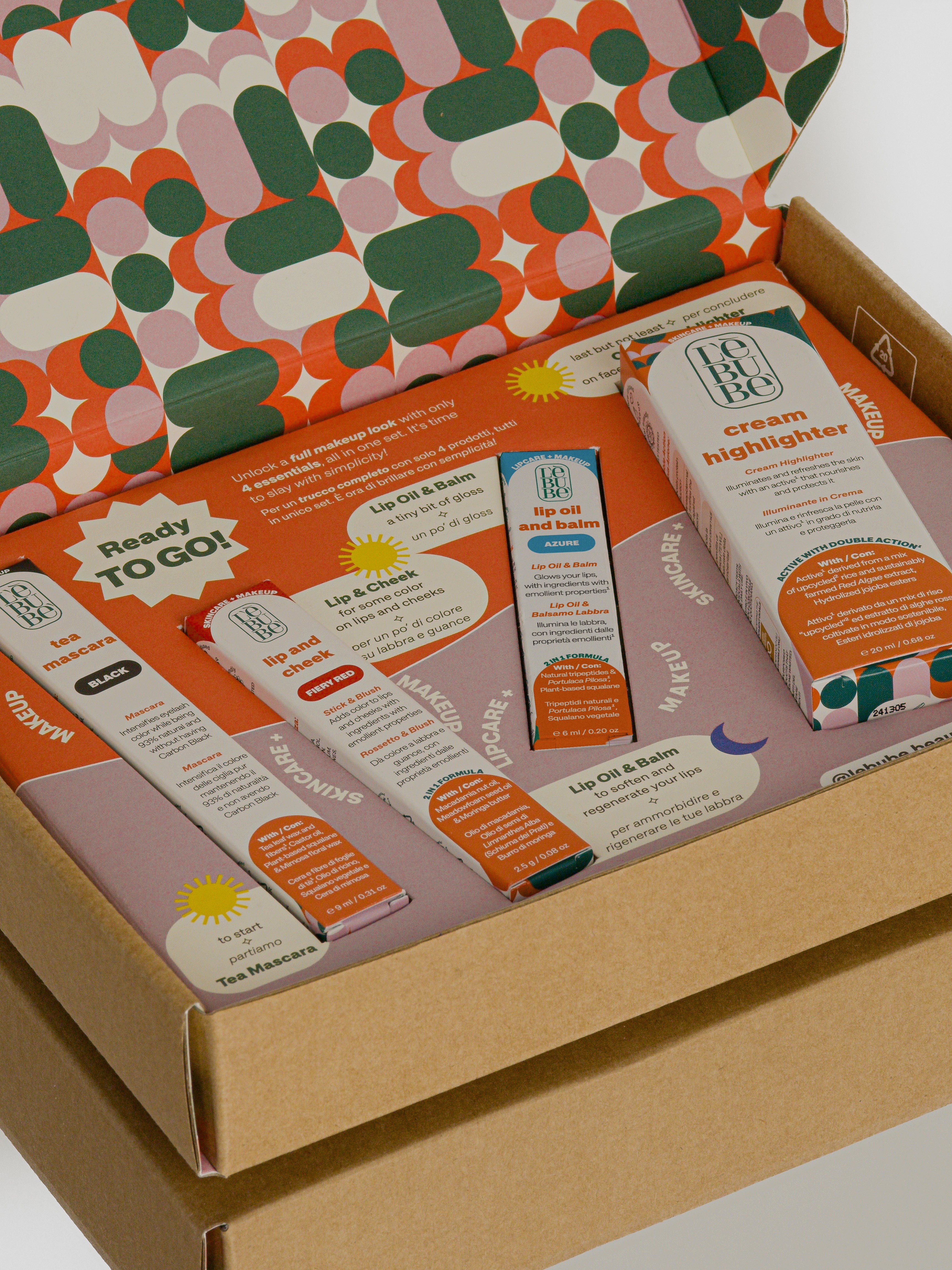by Mirta Cerioli
TL;DR:
Makeup doesn’t automatically worsen acne – it can be safe if you use non-comedogenic, oil-free products. Prep your skin with cleansing, moisturizing, and SPF before applying any makeup. Choose lightweight foundations, concealers, and powders that won’t clog pores. Hybrid cosmetics (makeup + skincare) are a game-changer for acne-prone skin. Always remove makeup gently and keep your brushes/tools clean.
Anyone with acne-prone skin knows the dilemma: wear makeup to feel more confident or avoid it for fear of more breakouts? The truth: makeup can be both safe and empowering if chosen carefully.
I’m Mirta, co-founder of Lebubè, and I battled hormonal acne for six years. Today, I’ll share everything I’ve learned about making makeup your ally – without compromising skin health.
What Is Acne and Why Does It Happen?
Acne is an inflammatory condition caused by excess sebum, clogged pores, and bacteria. It appears as blackheads, whiteheads, pimples, papules, or cysts.
Causes include:
- Excess sebum: Often triggered by hormones.
- Clogged pores: Blackheads and whiteheads block natural oil flow.
- Bacteria + inflammation: Trapped sebum feeds bacteria → redness, swelling, pimples.
Aggravating factors:
- Genetics (family history).
- Stress + diet (sugar, dairy).
- Poor habits (touching/popping pimples).
- Wrong products (oily or silicone-heavy makeup).
Dermatologists recommend products with salicylic acid or niacinamide to calm inflammation and regulate oil (Humanitas, 2023, Santagostino, 2023).
What Are the Main Makeup Challenges During Acne Breakouts?
Applying makeup when breakouts happen comes with specific struggles:
- Coverage without heaviness: Full-coverage foundation can emphasize texture.
- Hydration balance: Moisture is vital, but oily products clog pores.
- Product safety: Some cosmetics contain comedogenic ingredients that worsen acne.
The solution? A structured routine + smart product choices.

What Is the Best Makeup Routine for Acne-Prone Skin?
1. Prepare Your SkinCleanse: Use a gentle cleanser.
- Cleanse: Use a gentle cleanser.
- Moisturize: Apply a lightweight, non-comedogenic cream.
- Protect: Finish prep with mattifying SPF.
2. Choose the Right Products
- Foundation: Oil-free, non-comedogenic, ideally with salicylic acid.
- Concealer: Green for redness, warm tones for scars.
- Powder: Light mattifying powder to control shine.
3. Apply Makeup Correctly
- Primer: For oily/acne-prone skin → smooth base + longer hold.
- Foundation: Apply lightly with clean brushes/sponges.
- Spot conceal: Blend concealer gently on imperfections.
- Set: Light dusting of powder on T-zone.
- Extras: If using blush/highlighter, pick non-comedogenic formulas.
4. Remove Makeup Properly
- Step 1: Use a gentle remover for acne-prone skin.
- Step 2: Double-cleanse with a mild cleanser.
Which Makeup Products Are Best for Acne-Prone Skin?
Makeup isn’t just about covering acne — it can support your skincare too.
Hybrid cosmetics (makeup + skincare), like the ones of Lebubè, are the future. here are our face selection:
- Lebubè Cream Highlighter → gives glow, hydrates, protects.
- Lebubè Lip & Cheek → natural color + nourishing actives.
These products care for your skin while enhancing your look.

What Should You Avoid and What Are the Best Tips When Using Makeup on Acne-Prone Skin?
What to Avoid:
- Sleeping with makeup on.
- Heavy, oily foundations.
- Dirty brushes/sponges.
- Ingredients like mineral oils, heavy silicones, strong alcohol, artificial fragrance, lanolin.
Pro Tips:
- Stick to non-comedogenic formulas.
- Keep your routine simple and targeted.
- Practice good hygiene with tools and removal.
With the right precautions and careful product selection, makeup can be an ally for those with acne prone skin. Listen to your skin’s needs and adapt your routine accordingly. And remember: makeup isn’t just about aesthetics, but a way to feel comfortable in your own skin.
FAQs
Should I stop wearing makeup if I have acne?
No. With non-comedogenic, oil-free products, makeup can be safe and even empowering.
What makeup works best for acne-prone skin?
Lightweight, oil-free products with salicylic acid or niacinamide.
How do I protect acne-prone skin when wearing makeup?
Cleanse, moisturize, use SPF, apply with clean tools, and remove at night.
Are hybrid cosmetics good for acne-prone skin?
Yes. They combine skincare benefits with makeup performance.
What ingredients should I avoid?
Mineral oils, heavy silicones (dimethicone), alcohol (high concentration), lanolin, and artificial fragrances.

